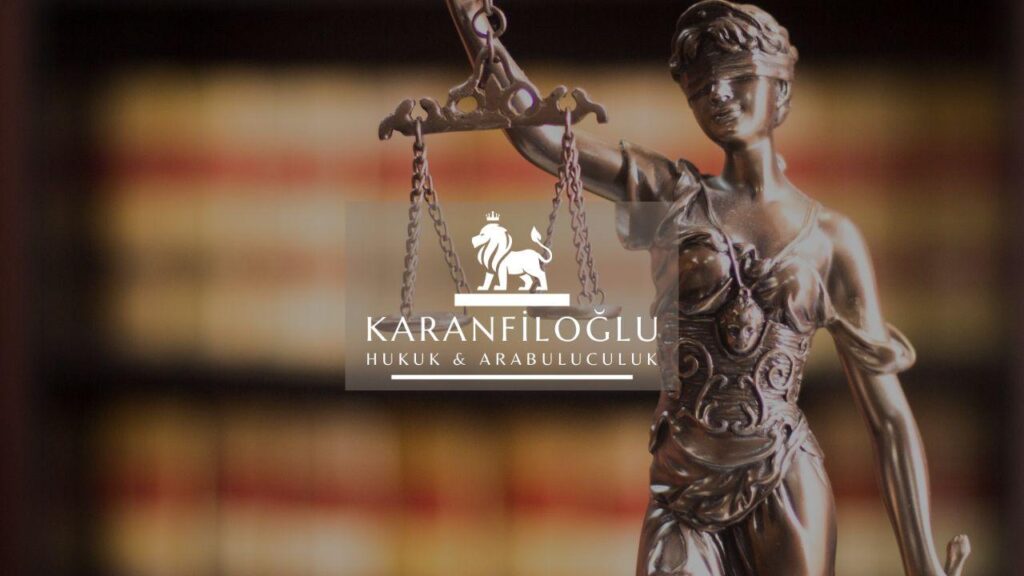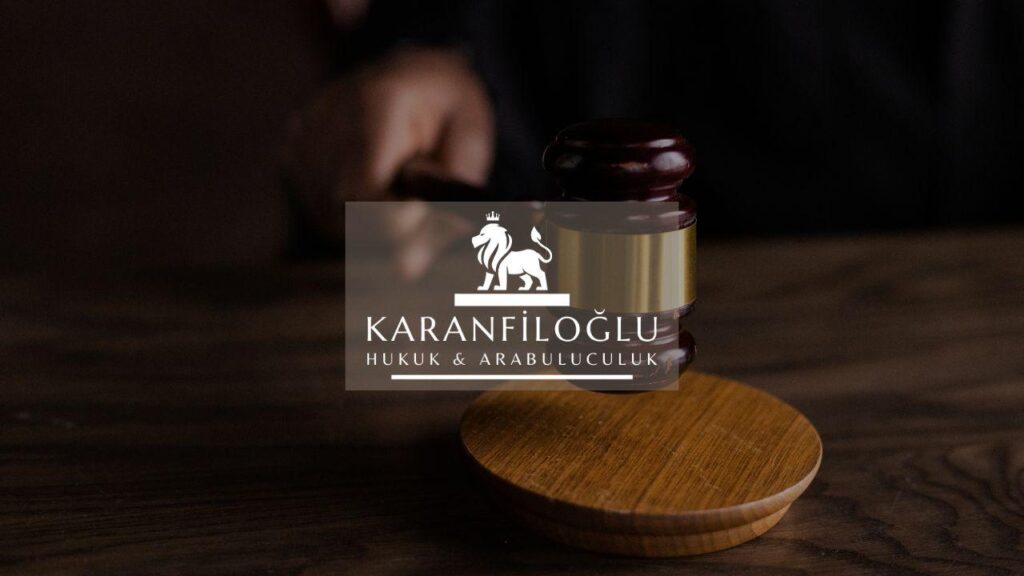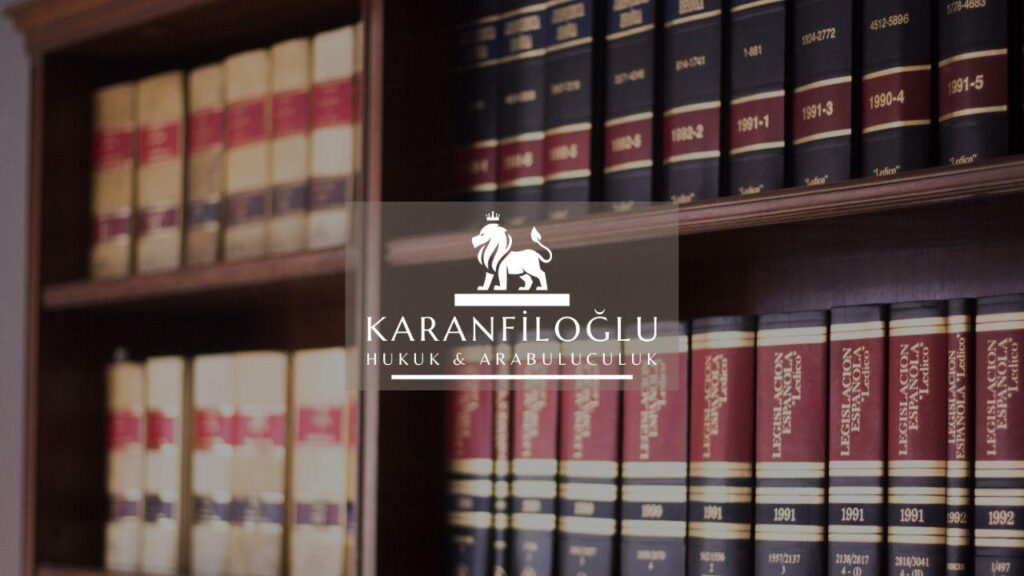Navigating security deposit disputes in Turkey requires a thorough understanding of the relevant legal framework. According to the Turkish Code of Obligations (Law No. 6098), specifically Articles 342 and 343, landlords are required to refund the security deposit within a reasonable period after the tenant vacates the premises, provided no damages are incurred. In cases of disagreement, Article 284 outlines the conditions under which a tenant may seek legal recourse to reclaim the deposit. At Karanfiloglu Law Office, we specialize in providing expert legal advice and representation to both landlords and tenants embroiled in such disputes. Our seasoned attorneys are adept at ensuring our clients’ rights are protected, leveraging the full extent of Turkish property laws to achieve fair and swift resolutions. Whether you are a landlord dealing with property damages or a tenant seeking the return of your deposit, our dedicated team is here to guide you through every step of the legal process.
Understanding Your Legal Rights and Obligations as a Tenant
As a tenant in Turkey, it is crucial to understand your legal rights and obligations concerning security deposits. Article 342 of the Turkish Code of Obligations (Law No. 6098) stipulates that the security deposit must be returned to the tenant once the rental agreement ends, barring any damages to the property or unpaid debts related to the lease. This deposit typically serves as a safeguard for the landlord against potential losses resulting from tenant misconduct. However, if you have fulfilled all your lease obligations and left the property in good condition, you are entitled to a full refund. Any attempt by the landlord to withhold this deposit without legitimate cause may be contested under Article 343, which outlines the tenant’s rights in security deposit disputes.
It’s important to note that the return of the security deposit must be made within a “reasonable time” as defined under Turkish law. Article 342 specifies that the deposit must be refunded in accordance with the tenant’s discharge of responsibilities unless any rightful claims are assessed against it. In practice, this often means that landlords are expected to return the deposit roughly within one month of the tenant vacating the property, provided the inspection for damages and settlements of outstanding bills have been completed. If a dispute arises, tenants can seek mediation as a preliminary step before potentially escalating the matter to the courts. Article 284 of the Turkish Code of Obligations allows tenants to file a lawsuit to reclaim their deposit if the landlord fails to comply with legal requirements. Seeking professional legal counsel can significantly bolster your chances of resolving the matter efficiently and justly.
At Karanfiloglu Law Office, we understand that navigating a security deposit dispute can be daunting for tenants. Our experienced attorneys are adept at analyzing the specifics of your situation, offering tailored legal solutions that align with Articles 342, 343, and 284 of the Turkish Code of Obligations. We can help you gather necessary documentation, such as lease agreements, property inspection reports, and communication records with your landlord, all of which are critical for building a strong case. By leveraging our extensive knowledge of Turkish property law, we strive to negotiate favorable outcomes without the need for prolonged legal battles. However, if court involvement becomes necessary, our skilled litigators are prepared to advocate vigorously on your behalf, ensuring that your rights under Turkish law are fully upheld.
Steps to Take When Your Security Deposit Is Unfairly Withheld
The first step in addressing an unfairly withheld security deposit is to formally communicate with your landlord. Under Article 342 of the Turkish Code of Obligations (Law No. 6098), the tenant has the right to request the return of the security deposit once the lease term has ended and the property has been vacated. It’s wise to send a written notice detailing your request for the deposit and citing any pertinent sections of the lease agreement. Clearly state the condition in which you left the property and attach any relevant photos or documents that support the absence of damages. This approach not only demonstrates your initiative to resolve the issue amicably but also serves as valuable evidence should you need to take further legal action.
If the initial communication does not yield results, your next step is to engage in mediation, as outlined in Article 335 of the Turkish Code of Obligations (Law No. 6098). Mediation provides an opportunity for both parties to reach an equitable resolution without the need for court intervention. This process is often quicker and less costly, promoting a fair discussion under the guidance of a neutral mediator. In Turkey, the mediation process has been increasingly recognized as an effective means to solve disputes related to security deposits. At this stage, legal representation can be particularly beneficial. At Karanfiloglu Law Office, our attorneys can assist you in preparing a strong case for mediation, ensuring that your rights and claims are effectively communicated and vigorously defended.
Should mediation fail to secure a satisfactory outcome, the final recourse is to initiate legal proceedings in a Turkish court. Article 284 of the Turkish Code of Obligations (Law No. 6098) specifies that tenants can file a lawsuit to reclaim their security deposit. The court will evaluate the evidence provided, such as the lease agreement, condition reports, and any correspondence between the tenant and landlord. It is crucial to present a comprehensive and well-documented case to substantiate your claim fully. Engaging a qualified attorney from Karanfiloglu Law Office can significantly bolster your chances of success. Our legal team, well-versed in Turkish property laws, will navigate the complexities of the judicial system on your behalf, aiming for a swift and just resolution to ensure your security deposit is rightfully returned.
Legal Options for Resolving Security Deposit Disputes in Turkey
When facing a security deposit dispute in Turkey, understanding your legal options is crucial. According to Article 342 of the Turkish Code of Obligations, the security deposit serves as a guarantee for any unpaid rent or damages to the property. If a dispute arises, tenants can initially attempt to resolve the issue through direct negotiation with the landlord. If this approach fails, tenants have the right to file a claim in the court of peace under Article 343, requesting the return of their deposit. In such cases, the court will assess the validity of the landlord’s claims for withholding any portion of the deposit. Additionally, Article 284 allows tenants to seek compensation for any unlawful retention of the deposit, making it a key legal avenue for reclaiming funds. At Karanfiloglu Law Office, we advise clients on the best strategies for navigating these legal pathways effectively.
In addition to court proceedings, mediation presents a valuable alternative for resolving security deposit disputes. As per the Law on Mediation in Civil Disputes (Law No. 6325), mediation can serve as a less adversarial and more cost-effective option for both landlords and tenants. Engaging in mediation often results in quicker settlements and can help preserve the landlord-tenant relationship by fostering a mutually agreeable resolution. At Karanfiloglu Law Office, our legal experts can guide clients through the mediation process, ensuring their interests are effectively represented. Whether you’re opting for mediation or court action, having seasoned legal advice can be pivotal in securing a fair outcome. Our team is proficient in leveraging these alternative dispute resolution methods to resolve disputes efficiently, minimizing the stress and cost for our clients while ensuring compliance with Turkish legal standards.
Finally, it is essential to be aware of the evidentiary requirements in security deposit disputes. According to Article 200 of the Turkish Code of Obligations, all agreements related to the lease, including security deposits, must be documented in writing to be enforceable. Both landlords and tenants should keep thorough written records of the lease agreement, the deposit amount, and any subsequent communications or transactions regarding property damages and repairs. Photographic or video evidence of the property’s condition at the time of move-in and move-out can also be indispensable in supporting your claim. At Karanfiloglu Law Office, we assist our clients in compiling and presenting robust evidence to strengthen their position in both mediation and litigation. Our dedication to meticulous case preparation ensures that we can effectively advocate for our clients’ rights, whether they aim to recover a withheld deposit or justify retaining it for legitimate damages.
Disclaimer: This article is for general informational purposes only and you are strongly advised to consult a legal professional to evaluate your personal situation. No liability is accepted that may arise from the use of the information in this article.







